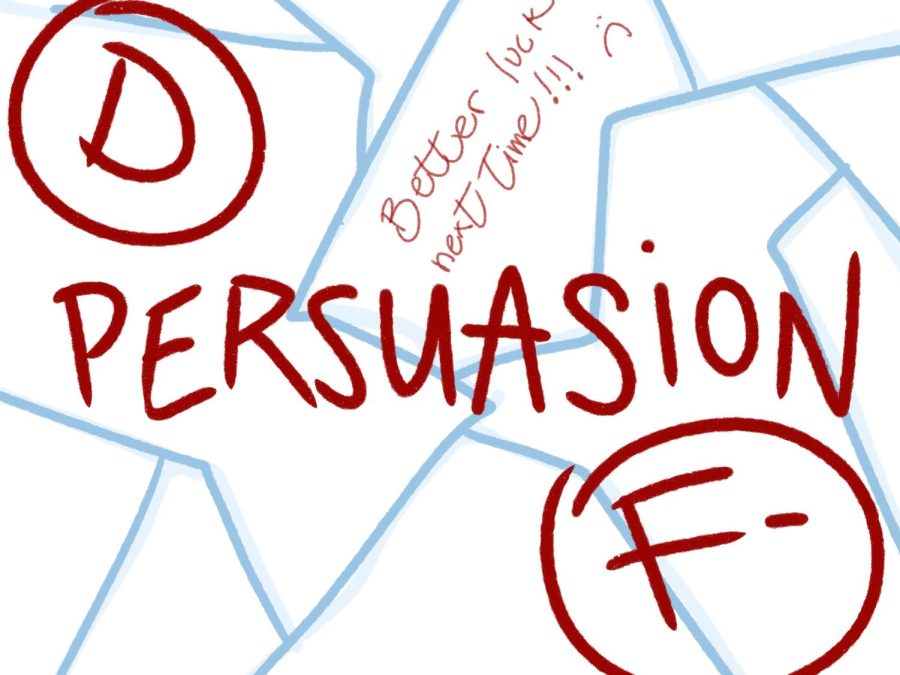Netflix’s Terrifyingly Bad Persuasion Adaptation
0/5 Falcons
October 6, 2022
Jane Austen adaptations tend to come along every ten years or so, which are consistently unique and impactful to their designated generation of new Austen fans. Adaptations ranging from Clueless to the 2005 Pride and Prejudice have attracted massive cult followings, usually staying true to the iconic source material while also making slight adjustments. These changes usually include wardrobe, commitment (or lack thereof) to the time period, and small tweaks to dialogue that serve to enhance the characters and their interactions. Most recently, Netflix released an adaptation of Austen’s Persuasion, starring Dakota Johnson and directed by Carrie Cracknell. I’ll be blunt: Netflix’s Persuasion was one of the worst Austen adaptations so far, probably due to the fact that it barely felt connected to the book. In the most basic sense of the plot, yes, the movie follows Anne Elliott and Captain Frederick Wentworth, who fall in love but continue to be torn apart by social norms regarding class and wealth. However, Persuasion strays from any traits Austen gave to the book’s protagonist, Anne Elliott, and takes far too much creative liberty when it comes to dialogue.
Persuasion‘s writers, Ron Bass and Alice Victoria Winslow, claimed that they included lines such as “He’s a ten—I never trust a ten” and, “Now we are worse than friends, we’re exes” to introduce Austen to a new generation of potential fans who use that slang and therefore would relate better to the characters. By doing this, however, they have underestimated the intellect of young people. Winslow and Bass claim that the current generation of teenagers would not be able to digest classic literature without the messy integration of current popular phrases. I would argue that I know many people of my same age, and even some younger than me, who have read, understood, and enjoyed Austen’s novels. Dialogue does not have to be easily consumable to be enjoyable and impactful to young people.
I’d assume that there would have been less of an outcry if the source material they had wrecked had been less iconic and influential. Persuasion is an incredible novel with a fascinating protagonist. Anne Elliott is awkward, plain-looking, and antisocial. At the time, she was the anti-protagonist, especially in a Jane Austen novel. Most Austen protagonists were strong-willed and feisty girls who resonated with much more outgoing readers. Anne Elliot was for introverts. Netflix’s Persuasion turned Anne into a confident, outspoken, beautiful woman. Netflix’s Anne Elliott felt like a betrayal to the original Anne.
I believe that there is no one change that could save this adaptation. It simply shouldn’t have been made. It is even more terrifying to hear that the writers are planning on making more Jane Austen adaptations in the future, starting with Pride and Prejudice. This is one of the most sacred books to Austen fanatics, so it will be interesting to see the public reaction to what I can only assume will be an assassination of the source material. Stay tuned!
This article also appears in our September 2022 print edition.










